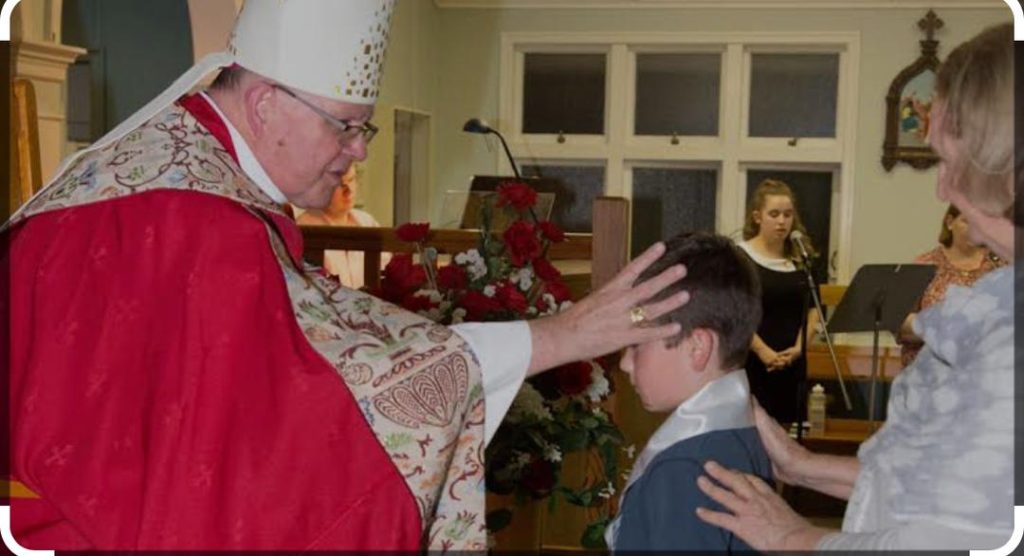Catholic Faith Sacraments
The sacrament that strengthens faith is the Sacrament of Confirmation in Christian traditions, particularly within the Catholic, Orthodox, and Anglican churches. Confirmation is seen as a way to deepen and strengthen the faith received at baptism through the Holy Spirit. This sacrament involves the laying on of hands and anointing with chrism oil by a bishop or priest, symbolizing the gift of the Holy Spirit and the reaffirmation of one’s faith.
Significance of Confirmation
Confirmation is considered one of the three Sacraments of Initiation in Christianity, along with Baptism and the Eucharist. It is viewed as a way to complete and strengthen the grace received at Baptism. While Baptism is seen as the sacrament of rebirth and entry into the Christian community, Confirmation is seen as the sacrament of maturity and deepening of faith.
Biblical Basis
The practice of Confirmation has its roots in the New Testament. Jesus promised the gift of the Holy Spirit to his disciples (John 14:15-17, 26; Acts 1:8). The coming of the Holy Spirit at Pentecost (Acts 2:1-4) is often seen as the scriptural foundation for Confirmation. Additionally, the laying on of hands to impart the Holy Spirit is mentioned in Acts 8:14-17 and Acts 19:6.

The Rite of Confirmation
The specific rites and ceremonies can vary among different Christian denominations, but generally, the process involves:
- Renewal of Baptismal Promises: The candidates renew the promises made at their Baptism, often rejecting sin and professing faith in God.
- Laying on of Hands: The bishop or priest extends their hands over the candidates, invoking the Holy Spirit to come upon them.
- Anointing with Chrism Oil: The bishop or priest anoints the candidates with holy oil (chrism) on the forehead, saying, “Be sealed with the gift of the Holy Spirit.” The oil is a symbol of strength and healing.
- Sign of Peace: The bishop or priest often gives a sign of peace to the newly confirmed, symbolizing their unity with the church.
Effects of Confirmation
The Catechism of the Catholic Church outlines several key effects of Confirmation:
- Increased Grace: Confirmation increases and deepens the grace received at Baptism.
- Gifts of the Holy Spirit: It imparts the seven gifts of the Holy Spirit: wisdom, understanding, counsel, fortitude, knowledge, piety, and fear of the Lord.
- Strengthening of Faith: The sacrament strengthens the individual’s bond with the Church and their ability to witness to the faith.
Age and Preparation
The age at which Confirmation is received varies among denominations and regions. In the Catholic Church, it often occurs during adolescence, though in some places it may be conferred at an earlier age. Candidates typically undergo a period of preparation, which includes catechesis (religious instruction) and sometimes a retreat or other spiritual exercises to ensure they are ready to receive the sacrament. Click here to read more about the Catholic Faith Sacraments
Importance in Christian Life
Confirmation is important because it marks the point at which a person’s faith is considered to have reached a new level of maturity. It is a public declaration of one’s faith and commitment to live according to the teachings of Christ. It also empowers the individual to take on a more active role in the mission of the Church, to serve others, and to bear witness to their faith in their daily lives.
In summary, Confirmation is a vital sacrament in the Christian tradition that strengthens and deepens the faith of the individual, bestowing the gifts of the Holy Spirit and completing the process of Christian initiation begun at Baptism. Visit this link to read and know more the the catholic insight and doctrines.




Leave a Reply